Hyundai IONIQ 6 vs Nissan Juke – Which one offers the better deal?
Compare performance, boot capacity, efficiency and price at a glance.
Find out which car is the better choice for you – Hyundai IONIQ 6 or Nissan Juke?
Costs and Efficiency:
Looking at overall running costs, both models reveal some interesting differences in everyday economy.
Nissan Juke has a convincingly advantage in terms of price – it starts at 21400 £, while the Hyundai IONIQ 6 costs 37600 £. That’s a price difference of around 16243 £.
Engine and Performance:
Power, torque and acceleration are the classic benchmarks for car enthusiasts – and here, some clear differences start to show.
When it comes to engine power, the Hyundai IONIQ 6 has a clearly edge – offering 650 HP compared to 143 HP. That’s roughly 507 HP more horsepower.
In acceleration from 0 to 100 km/h, the Hyundai IONIQ 6 is convincingly quicker – completing the sprint in 3.20 s, while the Nissan Juke takes 10.10 s. That’s about 6.90 s faster.
In terms of top speed, the Hyundai IONIQ 6 performs noticeable better – reaching 257 km/h, while the Nissan Juke tops out at 180 km/h. The difference is around 77 km/h.
There’s also a difference in torque: Hyundai IONIQ 6 pulls convincingly stronger with 770 Nm compared to 200 Nm. That’s about 570 Nm difference.
Space and Everyday Use:
Cabin size, boot volume and payload all play a role in everyday practicality. Here, comfort and flexibility make the difference.
Both vehicles offer seating for 5 people.
In curb weight, Nissan Juke is decisively lighter – 1274 kg compared to 1850 kg. The difference is around 576 kg.
In terms of boot space, the Nissan Juke offers barely noticeable more room – 422 L compared to 401 L. That’s a difference of about 21 L.
When it comes to payload, Hyundai IONIQ 6 hardly perceptible takes the win – 430 kg compared to 427 kg. That’s a difference of about 3 kg.
Who wins the race?
The Hyundai IONIQ 6 proves to be dominates this comparison and therefore becomes our DriveDuel Champion!
Hyundai IONIQ 6 is the better all-rounder in this comparison.
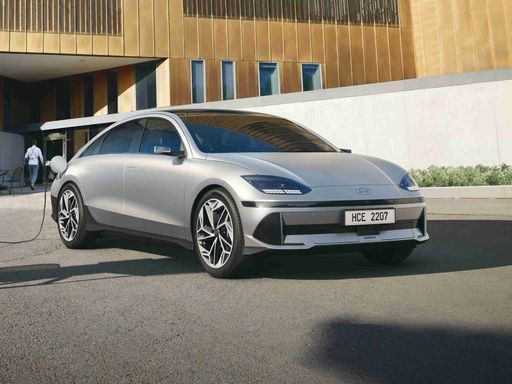
Hyundai IONIQ 6
Hyundai IONIQ 6
The Hyundai IONIQ 6 merges futuristic design with eco-friendly technology, offering a glimpse into the future of electric mobility. Its sleek silhouette and aerodynamic profile are sure to capture attention on the road, while the interior provides a seamless blend of comfort and cutting-edge digital features. With a focus on efficiency and sustainability, this model represents a significant step forward in the evolution of electric vehicles.
details @ hyundai.news
@ hyundai.news
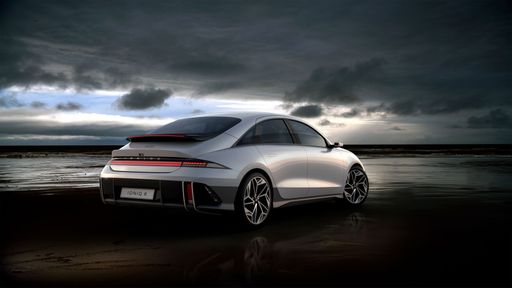 @ hyundai.news
@ hyundai.news
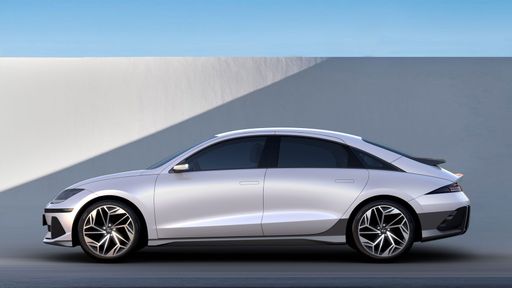 @ hyundai.news
@ hyundai.news
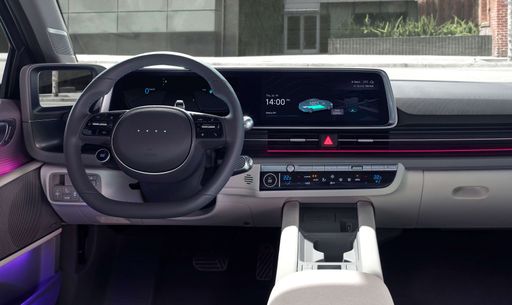 @ hyundai.news
@ hyundai.news
Nissan Juke
The Nissan Juke stands out with its distinctive design and bold styling, making it a popular choice for those seeking something different on the road. Its interior cleverly combines modern technology with comfort, offering an enjoyable driving experience for both the driver and passengers. Despite its compact size, the Juke provides a surprising amount of space and versatility, making it suitable for urban adventures and weekend getaways alike.
details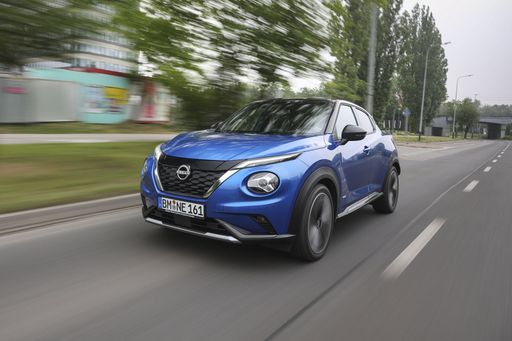 @ germany.nissannews.com
@ germany.nissannews.com
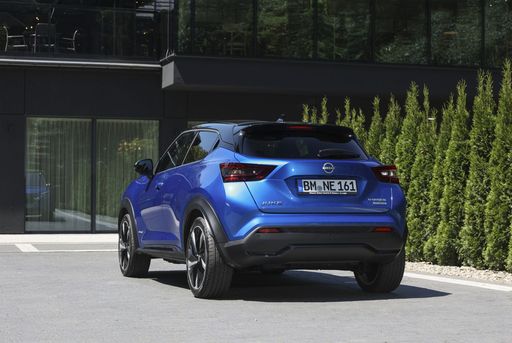 @ germany.nissannews.com
@ germany.nissannews.com
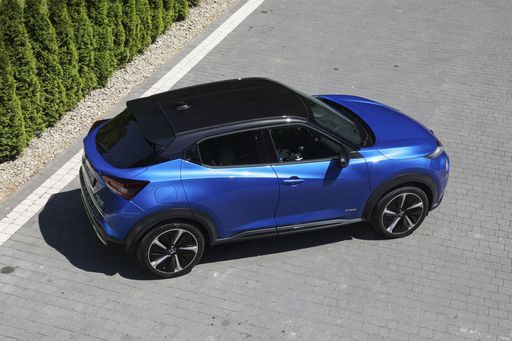 @ germany.nissannews.com
@ germany.nissannews.com
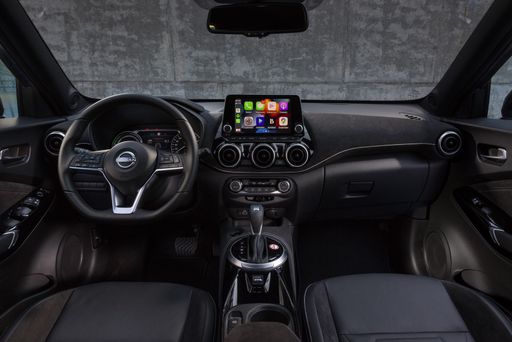 @ germany.nissannews.com
@ germany.nissannews.com

|

|
|
|
|
Costs and Consumption |
|
|---|---|
|
Price
37600 - 64300 £
|
Price
21400 - 30100 £
|
|
Consumption L/100km
-
|
Consumption L/100km
4.7 - 6 L
|
|
Consumption kWh/100km
13.9 - 15.1 kWh
|
Consumption kWh/100km
-
|
|
Electric Range
429 - 614 km
|
Electric Range
-
|
|
Battery Capacity
53 - 84 kWh
|
Battery Capacity
0.60 kWh
|
|
co2
0 g/km
|
co2
107 - 136 g/km
|
|
Fuel tank capacity
-
|
Fuel tank capacity
46 L
|
Dimensions and Body |
|
|---|---|
|
Body Type
Hatchback
|
Body Type
SUV
|
|
Seats
5
|
Seats
5
|
|
Doors
4
|
Doors
5
|
|
Curb weight
1850 - 2095 kg
|
Curb weight
1274 - 1405 kg
|
|
Trunk capacity
401 L
|
Trunk capacity
354 - 422 L
|
|
Length
4855 - 4935 mm
|
Length
4210 mm
|
|
Width
1880 - 1940 mm
|
Width
1800 mm
|
|
Height
1495 mm
|
Height
1593 mm
|
|
Max trunk capacity
-
|
Max trunk capacity
1237 - 1305 L
|
|
Payload
425 - 430 kg
|
Payload
405 - 427 kg
|
Engine and Performance |
|
|---|---|
|
Engine Type
Electric
|
Engine Type
Petrol, Full Hybrid
|
|
Transmission
Automatic
|
Transmission
Manuel, Automatic
|
|
Transmission Detail
Reduction Gearbox
|
Transmission Detail
Manual Gearbox, Dual-Clutch Automatic, Automatic Gearbox
|
|
Drive Type
Rear-Wheel Drive, All-Wheel Drive
|
Drive Type
Front-Wheel Drive
|
|
Power HP
151 - 650 HP
|
Power HP
114 - 143 HP
|
|
Acceleration 0-100km/h
3.2 - 8.8 s
|
Acceleration 0-100km/h
10.1 - 11.8 s
|
|
Max Speed
185 - 257 km/h
|
Max Speed
166 - 180 km/h
|
|
Torque
350 - 770 Nm
|
Torque
200 Nm
|
|
Number of Cylinders
-
|
Number of Cylinders
3 - 4
|
|
Power kW
111 - 478 kW
|
Power kW
84 - 105 kW
|
|
Engine capacity
-
|
Engine capacity
999 - 1598 cm3
|
General |
|
|---|---|
|
Model Year
2022 - 2025
|
Model Year
2024
|
|
CO2 Efficiency Class
A
|
CO2 Efficiency Class
D, E, C
|
|
Brand
Hyundai
|
Brand
Nissan
|
What drive types are available for the Hyundai IONIQ 6?
Available configurations include Rear-Wheel Drive or All-Wheel Drive.
The prices and data displayed are estimates based on German list prices and may vary by country. This information is not legally binding.
